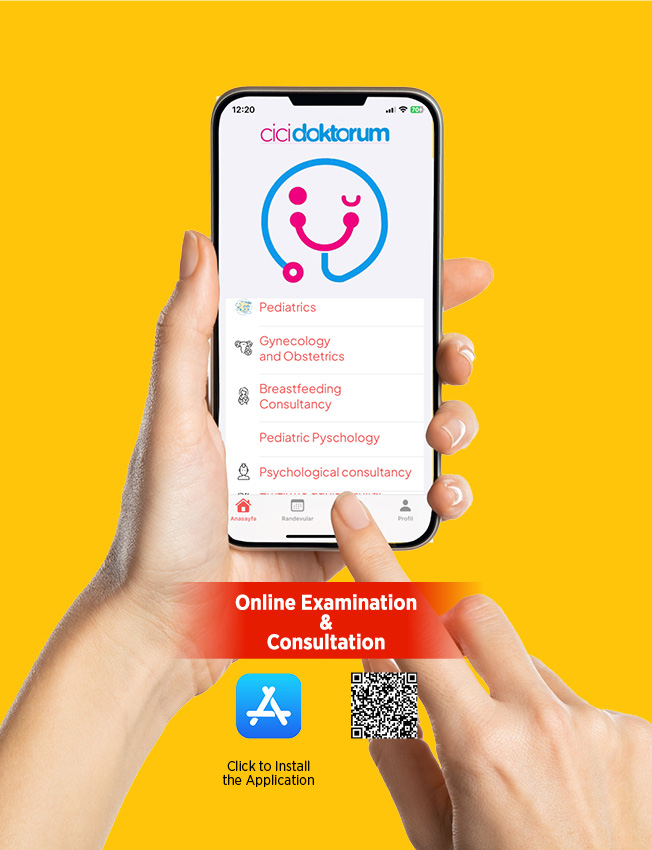When Should Therapy Be Sought for Speech Delays in Children?

Language and speech development is a critical process that rapidly progresses in the early years of life and is directly related to the child’s social, cognitive, and emotional development. Research shows that understanding the typical developmental milestones is essential for the early diagnosis of language and speech disorders.
The Importance of Your Child’s First Sounds
A child’s first vocalizations, first words, and first sentences are not only unforgettable moments for families; they are also significant milestones in their journey to understand the world, express themselves, and interact with their surroundings.
The First 5 Years: The “Golden Period” of Brain Development
Studies reveal that the first five years represent a “golden period” for brain development. When language delays seen during this time are detected early, they can be quickly addressed. However, if overlooked, they can negatively impact various areas, including academic success, social relationships, self-esteem, and emotional health.
Therefore, the most critical question for parents and experts is: “When should professional support be sought?”
Here Are Warning Signs Valid at All Ages
• Pay attention to speech fluency: Seek support immediately if you notice repetitions, blocks, or pauses similar to stuttering.
• Monitor vocal health: Frequent hoarseness, breathy or strained voice should not be ignored.
• Feeding and swallowing can provide information about language development: Persistent difficulties in adjusting to solid foods and chewing-swallowing issues should be addressed alongside language development.
• Social communication is vital: Inability to make eye contact, lack of gestures/facial expressions, or avoidance of communication with peers should be monitored closely.
The Power of Early Intervention in Speech Delays
Every month spent in language and speech development is a critical window of opportunity. Instead of waiting for delays observed in early childhood to “self-correct,” they should be supported by evidence-based interventions, which directly affect children’s future academic, social, and emotional lives. Research indicates that therapies initiated with early diagnosis and regular expert follow-ups can rapidly enhance children’s language skills and significantly reduce long-term negative outcomes.
Why Is Early Intervention and Expert Follow-Up Crucial?
– It changes outcomes: Interventions that start in preschool significantly improve both comprehension and expressive skills.
– Home-based approaches are powerful: Strategies used by parents in daily life can enhance a child’s vocabulary and sentence length, thereby improving their expressive and speaking abilities.
– Early support enhances speech fluency: Instead of waiting when there are repetitions, blocks, or pauses, early intervention is the safe option.
– Timing is critical in speech sound disorders: The acquisition of sounds is age-sensitive; as delays extend, incorrect patterns become reinforced, complicating the reading-writing process.
– Language is fundamental for literacy: Early language skills directly predict school success.
– Therapists recommend early referral: If there are any doubts, every child should be referred to a speech and language therapist.
– Follow-up is half the intervention: Regular monitoring is needed to update goals based on development and support generalization at home.
What Should Families Do?
– Evaluate immediately: If you observe your child is behind peers or exhibiting different developmental patterns, seek professional advice regarding any language, speech, fluency, voice, or feeding-swallowing areas.
– Strengthen the home: Continue practicing strategies learned in therapy through short and frequent activities at home.
The Golden Rule in Speech Development
Signs of concern should be assessed not only in relation to language and speech but also communication, social interaction, fluency, clarity, feeding-swallowing, and vocal health. If your child is falling behind their peers or exhibiting significant differences, do not hesitate to consult an expert.
Remember: The moment you wonder, “Is this normal?” is when you can get answers from a therapist.
Early initiation of language and speech therapy supports a child’s developmental journey, boosts their self-confidence, and helps them take solid steps in their academic and social lives.









